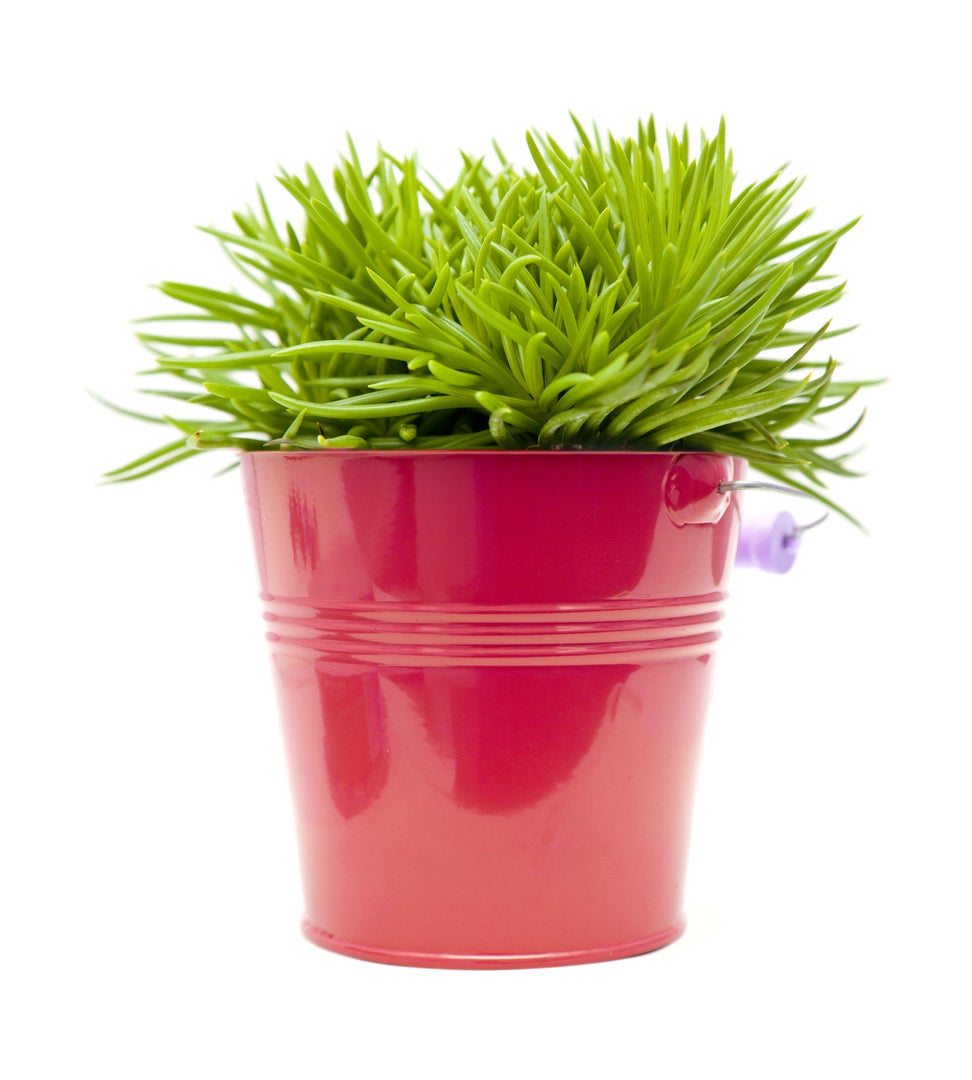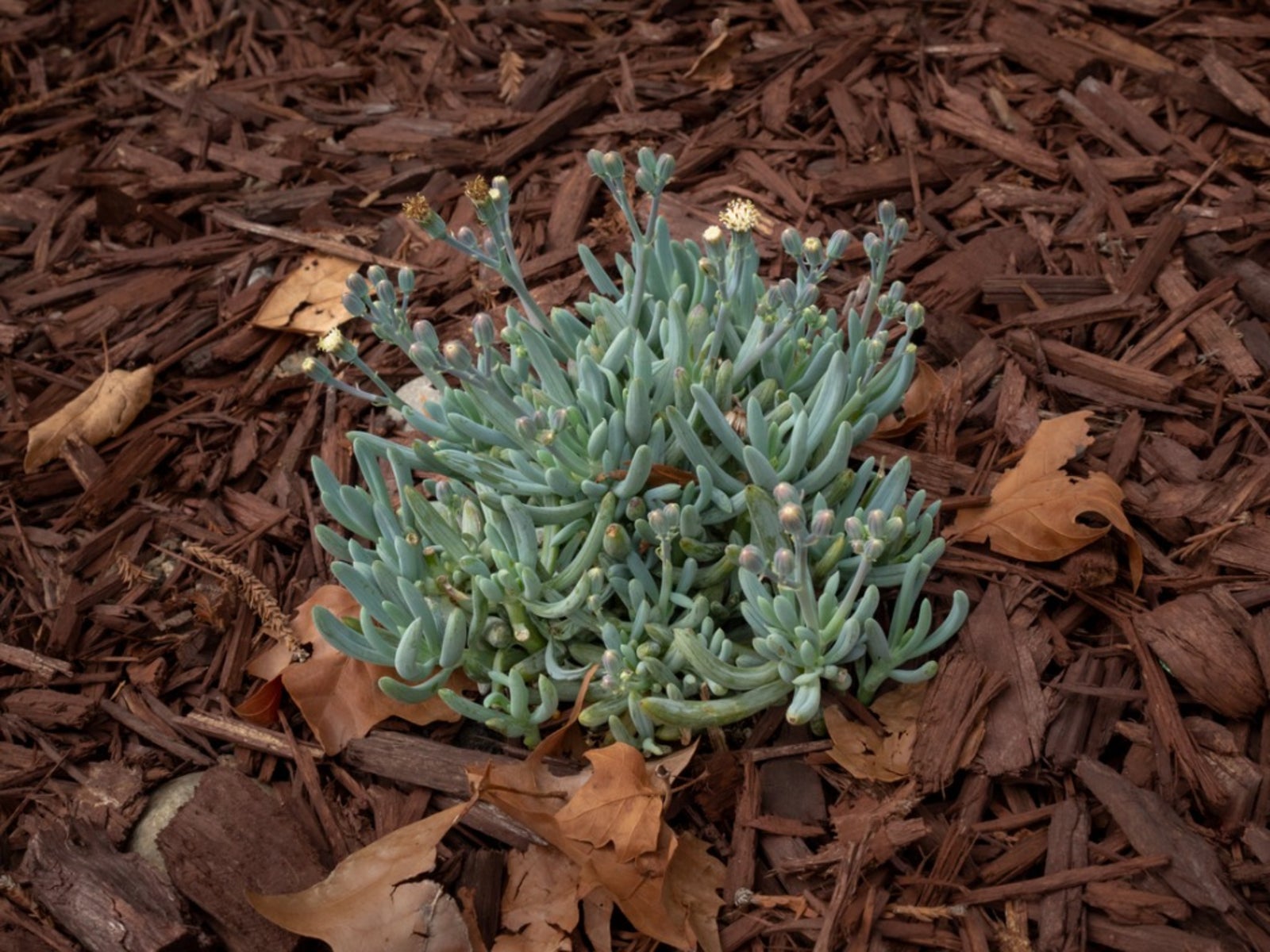Variegated Senecio – How To Grow Variegated Wax Ivy Plants

Senecio wax ivy (Senecio macroglossus ‘Variegatus’) is a delightful trailing plant with succulent stems and waxy, ivy-like leaves. Also known as variegated senecio, it is related to the string of pearls plant (Senecio rowleyanus). It is native to South Africa where it grows wild on the forest floor.
Variegated senecio may surprise you with pale yellow, daisy-like flowers, and, in bright sunlight, the stems and leaf edges take on a pink or purplish tint. You can plant in a hanging basket where the plump stems can cascade over the rim of the container.
Senecio wax ivy is a sturdy, low-maintenance plant suitable for growing outdoors in USDA plant hardiness zones 10 and above. It isn’t cold-hardy and is most often grown as an indoor plant.
How to Grow Variegated Wax Ivy
Grow variegated wax ivy in a container filled with a potting mix formulated for cacti and succulents.
For successful variegated wax ivy care, the plant is happiest in bright sunlight but can tolerate a bit of shade. Temperatures should be above 40 F. (4 C.), but the best growth occurs when temps are at least 75 F. (24 C.).
Water the plant until moisture trickles through the drainage hole, then don’t water again until the soil is slightly on the dry side. Like most succulents, variegated senecio will rot in soggy, poorly drained soil.
Although easy to grow in any container, clay pots work especially well because they are porous and allow more air to circulate around the roots. It requires very little fertilizer. Feed the plant every other month from spring through fall, using a water-soluble fertilizer mixed to one-quarter strength.
Gardening tips, videos, info and more delivered right to your inbox!
Sign up for the Gardening Know How newsletter today and receive a free copy of our e-book "How to Grow Delicious Tomatoes".
Trim as needed to keep the plant neat and tidy. Feel free to move your ivy plant outdoors during the summer but be sure to bring it back indoors well before the risk of frost.

A Credentialed Garden Writer, Mary H. Dyer was with Gardening Know How in the very beginning, publishing articles as early as 2007.
-
 Looking For Plants To Give You The Soft And Fuzzies? Try These 5 Fuzzy Leaf Plant Options
Looking For Plants To Give You The Soft And Fuzzies? Try These 5 Fuzzy Leaf Plant OptionsLovers of texture, drama, silver foliage and tactile plants will adore these special sensory garden additions. These fuzzy leaf plant options will leave you all aglow
By Susan Albert
-
 Get Ready For A Summer Of Hummers! Grow These Full Sun Hummingbird Plants and Flowers
Get Ready For A Summer Of Hummers! Grow These Full Sun Hummingbird Plants and FlowersIf you’re lucky enough to enjoy a sunny backyard, make sure you are maxing out on your pollinator opportunities and grow these full sun hummingbird plants and flowers
By Tonya Barnett
-
 What Is Senecio – Basic Tips For Growing Senecio Plants
What Is Senecio – Basic Tips For Growing Senecio PlantsThere are more than 1,000 varieties of senecio plants, and about 100 are succulents. These tough, interesting plants may be trailing, spreading groundcovers or large shrubby plants. Learn more about growing senecio plants, along with some important caveats, in this article.
By Mary H. Dyer
-
 Growing Blue Chalk Sticks: How To Care For Senecio Blue Chalk Sticks
Growing Blue Chalk Sticks: How To Care For Senecio Blue Chalk SticksBlue chalk succulents are often a favorite of succulent growers. The South African native is called blue chalk succulent or blue fingers for its attractive bluish, finger-like leaves. It also produces white summer blooms. Click here to learn more about this plant.
By Becca Badgett